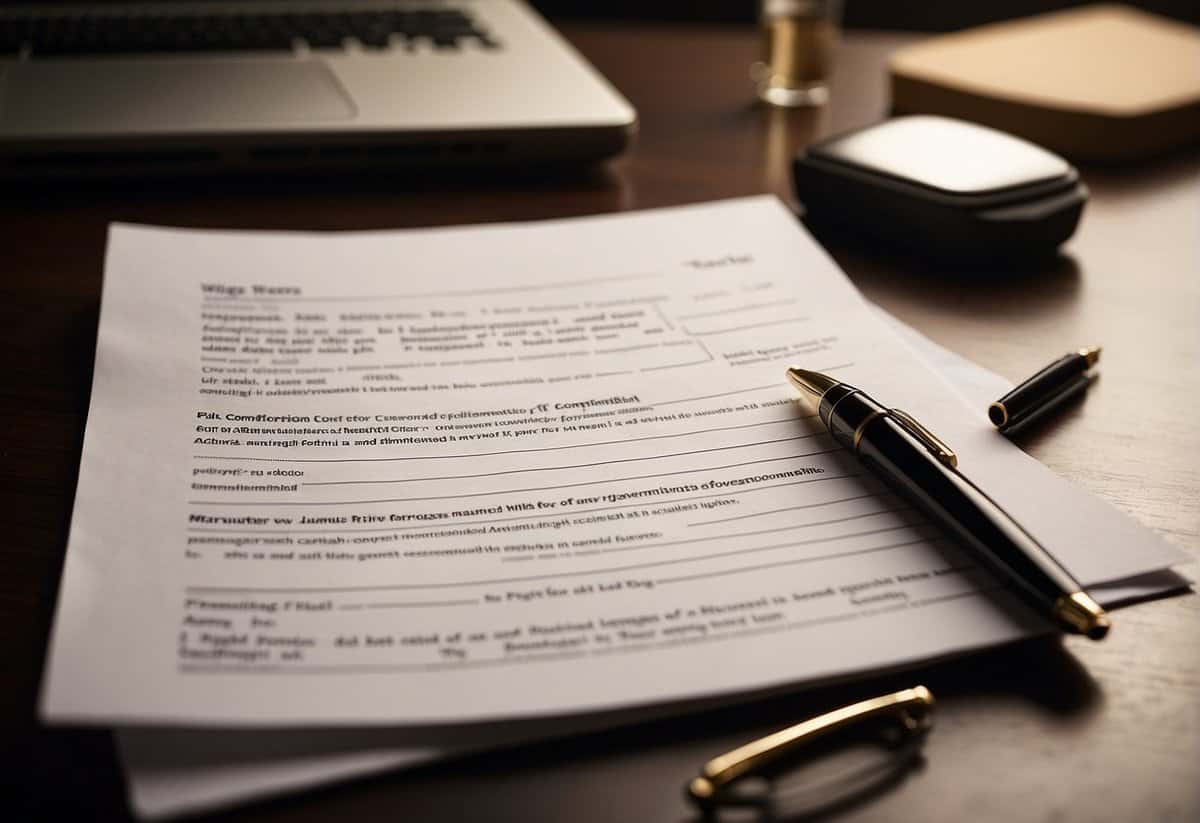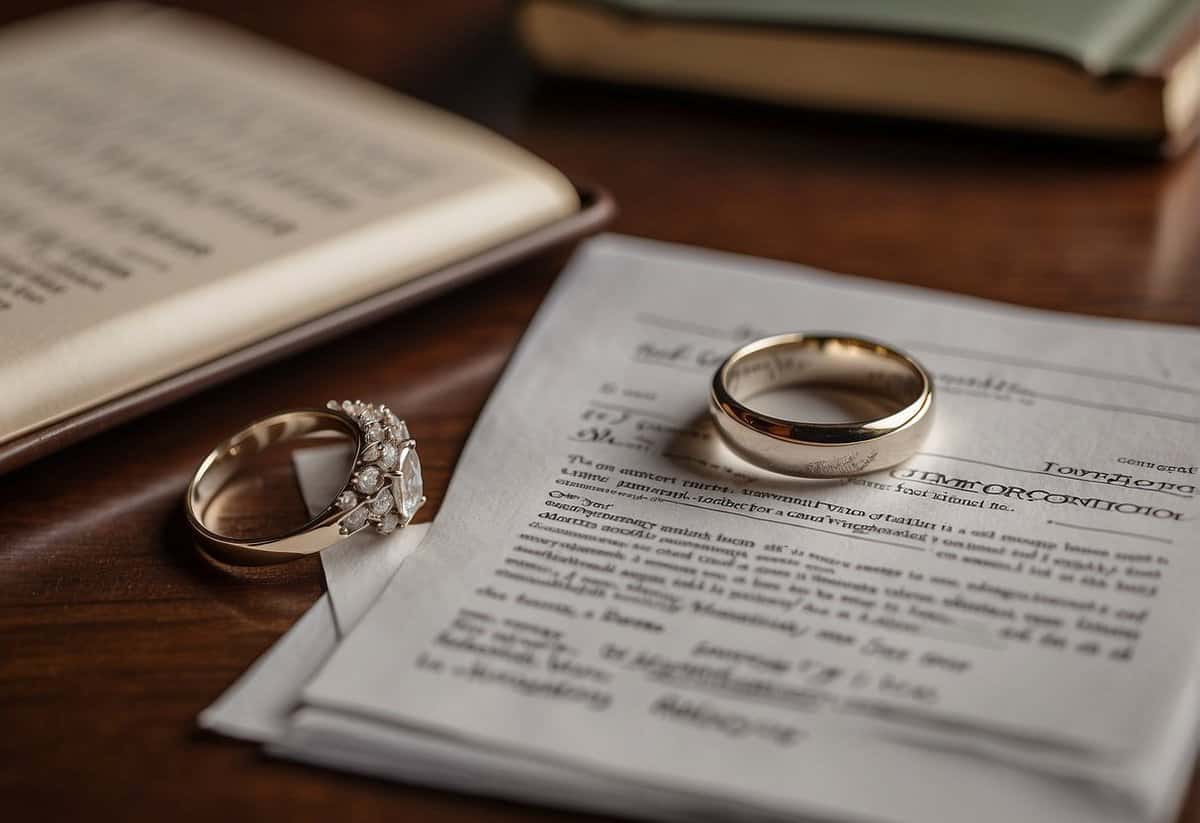How Do You Confirm If You Are Married? Simple Steps to Verify Your Marital Status
Determining your marital status may seem straightforward, but it can sometimes be more complicated than expected, especially when dealing with bureaucratic processes or if you’ve lived with a partner for an extended period under terms that might constitute a common-law marriage. If you need to confirm whether you’re married, perhaps for legal or financial reasons, the steps you take can vary based on where the marriage may have taken place and the availability of records.

You can start by checking for public marriage records that can typically be found online or at a county courthouse. For marriages that occurred abroad, U.S. citizens can send inquiries to the Department of State. Personal investigation also plays a role; assessing your living situation, shared assets, and even social media can offer clues on your relationship status.
Key Takeaways
- Verifying marital status requires checking governmental records or personal documentation.
- Inquiries at local courthouses or online databases can yield marriage records.
- Observing shared living habits and social interactions can reflect relationship statuses.
Legal Documentation and Records

To confirm if you’re married, you’ll need to focus on the legal documents and records that serve as tangible proof of your marital status. These include a marriage certificate, marriage license, and public records that are maintained by the office of the county clerk or other vital records offices.
Identifying Marriage Certificates
Your marriage certificate is the official document that evidences your union. It is issued by a governmental authority or public record office. To confirm its authenticity, this certificate should have a government seal and, often, an authorized signature. It’s crucial for formal procedures, like changing your name or applying for joint financial products.
Accessing Public Records
You have the right to access public records—these include marriage records which can establish the legality of your marriage. To find these records, reach out to the county clerk’s office where the marriage was recorded. For example, you can request a copy of a marriage certificate for official business or personal keeping.
Understanding Vital Records
Vital records are documents relating to life events like birth, marriage, and death. To verify your marital status, search the appropriate vital records which are archived in a specific county, state, or national database. If you’ve been previously married, you may also need to present divorce records to prove that you are currently eligible to marry again.
Online and Office Inquiries

When you’re trying to confirm your marital status, you have two primary avenues: using online databases to search for public records or getting in touch with the local county clerk’s office. Both methods can help you locate the marriage records you need, provided you have the correct full name and the location where the marriage was registered.
Utilizing Online Databases
Online databases are a resourceful way to search for marriage records from the comfort of your home. You can access a variety of state and county public records that include such information. Start by visiting websites such as StateRecords.org that can guide you through the process. Enter your full name, along with any other required details, to check for your marriage documentation. Be mindful that while some online platforms may offer free access, others could charge a service fee for detailed information.
Visiting County Clerk’s Office
If you prefer a more direct approach or need certified copies, head to your local county clerk’s office where your marriage was registered. It’s a reliable way to obtain official records. Depending on the state and county, you may need to file a request or complete an application form; officials at the office can provide you the necessary guidance. Remember to bring valid identification and any other requested information to facilitate the search. For more specifics, you might want to check out guides like the one provided on The Knot, which outlines the steps for obtaining a marriage certificate at the local office level.
Personal Investigation Tactics

Before you start scrolling through your significant other’s social media or dialing a private investigator, you need to understand the importance and effectiveness of each tactic. Knowing what to look for and whom to involve can greatly enhance the likelihood of confirming your marital status.
Social Media Insights
Social media can reveal a wealth of information about a person’s daily life and relationships. However, deciphering what’s on display requires a keen eye.
- Check Relationship Status: Platforms often allow users to list their relationship status. Look for any hints that they have mentioned a spouse or marital status.
- Review Photos and Videos: Skim through tagged photos and shared media for any wedding images or consistent appearances from a possible spouse.
- Examine Friends and Followers: A mutual circle of friends could hint at a shared life. Notice if you have many friends in common, especially those who could be from the spouse’s side.
Tips:
- Dig into comments for any casual mentions of a spouse.
- Context matters, so consider the nature of posts; are they personal or distant?
Private Investigator Services
Hiring a private investigator can give you a detailed picture of someone’s personal history and current activities.
- Credentials: Ensure they are licensed and have good references.
- Scope of Work: Discuss what you want to investigate, such as marital status, past relationships, assets like house or car, and signs of dating activity.
Key Services:
- Surveillance: Tracking day-to-day activities possibly involving a spouse.
- Background Checks: Gathering information on legal marital status, past relationships, and shared assets.
- Interviewing Acquaintances: Speaking with friends or colleagues to learn about personal matters indirectly.
When considering if private investigator services are right for you, think about the level of detail you need and the legal ramifications of uncovering personal information. Remember, it’s about getting clarity without invading someone’s privacy.
State-Specific Marriage Confirmation

When you’re looking to confirm your marital status, it’s vital to consider each state’s unique processes and repositories. This knowledge will direct you to the appropriate state agencies or offices where marriage records are maintained and accessible.
Contacting State Agencies
California: Reach out to the California Department of Public Health as they maintain marriage records. For records from 1905 to the present, you may request verification directly from them.
New York: In New York, the Department of Health provides marriage certificates, but recently, for certain counties like Buffalo or Albany, local city or town clerks should be contacted instead.
For most states, including but not limited to Kansas, Michigan, Missouri, New Jersey, and states like Alabama through Wyoming (excluding Hawaii), state health departments or vital statistics offices are generally responsible. You might also find records at the county courthouses where the marriage took place. In some cases, such as in the District of Columbia, the D.C. Superior Court holds jurisdiction over marriage records.
Regional Differences in Marriage Records
The Midwest, with states like Iowa, Illinois, and Minnesota, often keep marriage records at both the state and county level. It’s a good idea to start with county officials if you were married locally.
Along the East Coast, states like Maryland, Massachusetts, and Pennsylvania might coordinate records across several agencies, so checking with state archives or vital records offices is prudent.
Conversely, some Southern states like Georgia and Tennessee may have more centralized systems, with state departments of health maintaining comprehensive databases.
Western states like Arizona and Oregon often hold records in multiple locations, with county clerks and state offices. For specific regional information, always verify with local state government websites or direct inquiries to state offices to ensure correct procedures.
Frequently Asked Questions

When you’re looking to confirm a marriage, you’ll find that public records are a valuable resource. Here’s how to access them and what you should know to verify yours or someone else’s marital status.
How can I access public records to verify someone’s marital status?
You can access public records to verify someone’s marital status by visiting your local government office or using an online database. Typically, marriage records are considered public and can be viewed by anyone, but the specifics can vary by jurisdiction.
What are the steps to find out if I am legally married?
To find out if you’re legally married, check the official records at the county clerk’s office where the marriage would have been registered. Make sure you have relevant identification to obtain this information. Some states also offer online services to search for marriage records.
Where can I find marriage records online without any cost?
You can find marriage records online without any cost through various state or local government websites. Some states have searchable digital archives for public viewing. Availability and access might differ between states.
Is it possible to view and confirm a Florida marriage license online?
Yes, it is possible to view and confirm a Florida marriage license online via Florida’s official county clerks’ websites or the state’s online public records. You may need to provide the names of both parties and the approximate date of the marriage for the search.
How do you obtain proof of marriage or divorce?
Proof of marriage can be obtained by requesting a certified copy of the marriage certificate from the county clerk’s office where the marriage was registered. For proof of divorce, request a copy of the divorce decree from the court where the divorce was granted.
Can you determine the date of someone’s marriage through free online services?
While some free online services may provide basic information, they may not always include the exact date of the marriage. Your best chance for an accurate and complete record is through government databases available at most county clerk’s offices or their official websites.

